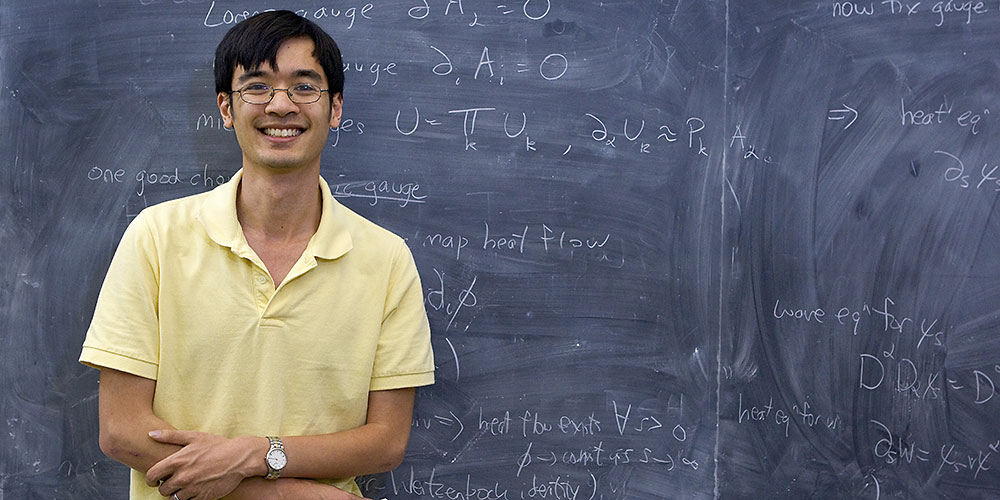Fields medalist Terence Tao: Lecture in Basel
Terence Tao is one of the most important mathematicians of our time. The Fields Medalist, who teaches in California, will give a lecture at the University of Basel next week. He will talk about the notorious Collatz conjecture – only by appearance the simplest mathematical problem.
05 February 2020
Terence Tao (born 1975 in Australia) exhibited extraordinary mathematical abilities from an early age. He was only 16 when he received his master's degree in mathematics and four years later obtained his PhD from Princeton University. At the age of 24, Tao became a professor at the University of California in Los Angeles, where he still works today. In 2006 he received the Fields Medal, the highest distinction in mathematics.
A deceivingly simple puzzle
Tao is a very versatile mathematician. The Collatz conjecture is not related to his research and is, moreover, considered a ‘dangerous’ problem that experts warn against – people become obsessed with it and tend to get lost in the allure of this seemingly simple question. Tao nevertheless dared to confront the problem and came away with one of the most significant results on the Collatz conjecture in decades.
What is the Collatz conjecture about? At the outset, it sounds like a party trick. The starting point is any natural number. If it is even, it is divided by two. If the number is odd, it is multiplied by three and one is added. The resulting number is then re-inserted into this simple rule and the procedure is repeated – as often as possible. The conjecture is about what happens as one keeps repeating the process. One might expect that the results would depend on the number one starts with, potentially producing ever-larger values. However, the Collatz conjunction predicts that this is not the case and that all starting value will inevitably lead to 1 again.
Collatz conjecture significantly advanced
It all sounds quite simple – but although these two rules have been applied to more than a quintillion numbers without finding a single exception, no mathematical proof can be derived from the Collatz conjecture to date. Tao has not solved the Collatz conjecture either but has made significant progress with the help of partial differential equations. In autumn 2019, he published a proof showing that the Collatz conjecture is "almost" true for "almost" all numbers. Whoever has become curious about this, can try a few examples with any of the many Collatz calculators available online.
Terence Tao: The notorious Collatz Conjecture. Lecture in English. Friday, 14 February 2020, 3.15 pm, Kollegienhaus of the University of Basel, Aula, Petersplatz 1, 4051 Basel. iCal



